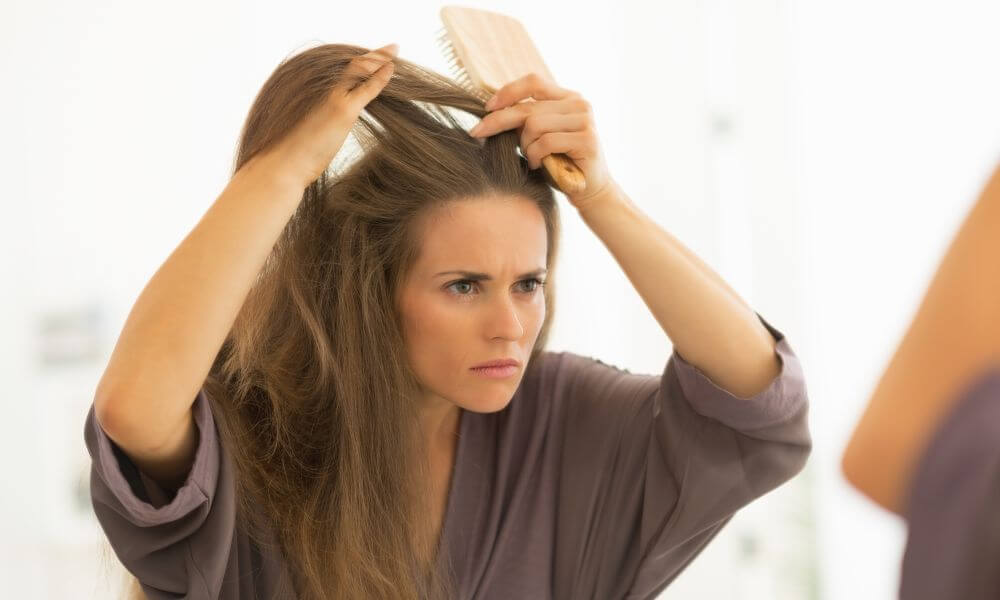Learn how to get rid of dandruff quickly and get relief from that itchy scalp
If you've ever dealt with dandruff, then you don't need us to tell you it's a frustrating and sometimes embarrassing condition.
Those white flakes seem to snow down at the most inopportune times, from a first date to a black tie affair.
If you've ever caught a glimpse of your reflection and frantically started brushing your shoulders off, know that you aren't alone. Dandruff affects well over half of the world's population.
While the condition isn't curable, the good news is that it is manageable. Read on to learn what dandruff is, what causes dandruff, and how to get rid of dandruff as fast as possible.
What Is Dandruff?
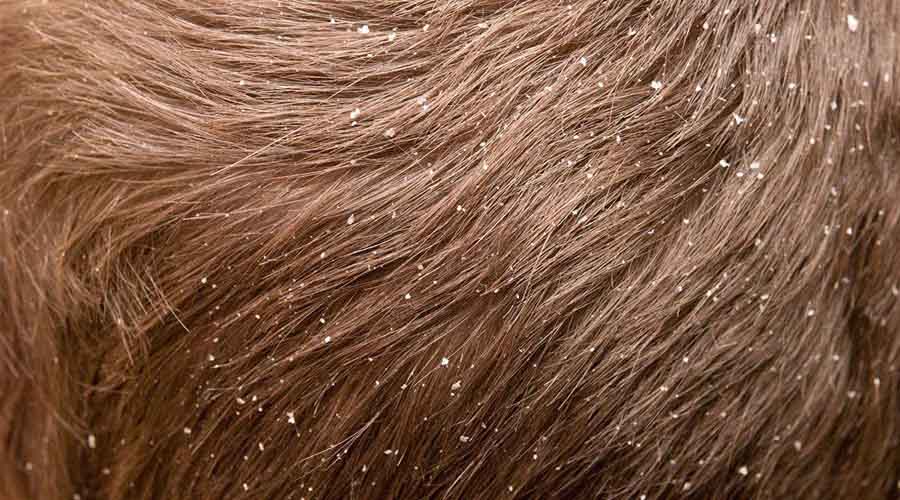
You're probably familiar with dandruff as little white flakes that fall from your head onto the back of your neck and shoulders.
What you might not realize is that those flakes are actually made up of dead skin cells from your scalp. These skin cells grow and die off more quickly than usual as a result of excess oil on the scalp, and this rapid die-off builds up and then falls from your head. It may sound gross, but dandruff is almost always harmless.
However, that doesn't mean it can't be uncomfortable or embarrassing. Dandruff may sometimes provoke itchiness, and it can get in the way of feeling confident when you're out and about.
What Causes Dandruff?
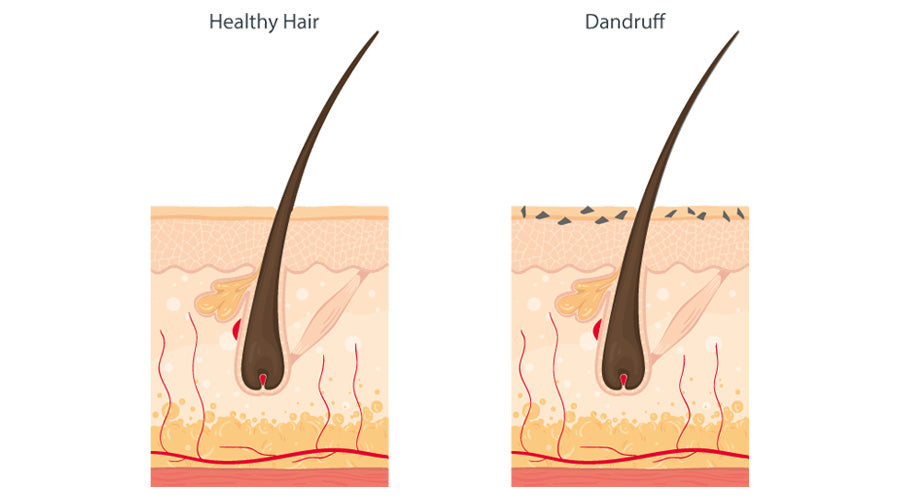
There's no (known) singular cause of dandruff, but researchers have identified some of the most possible causes:
Additionally, some factors may increase the likelihood of developing dandruff, even if they aren't a direct cause:
- Age. As a general rule, dandruff is more common in young adulthood and middle age
- Cold, dry winters
- Illnesses such as HIV and Parkinson's disease
- Indoor heating
- Irritating hair care products
- Poor diet
- Poor immune system function
- Sex. As a general rule, men are more likely to develop dandruff than women. This may be the result of male hormones
- Stress
How to Get Rid of Dandruff Fast
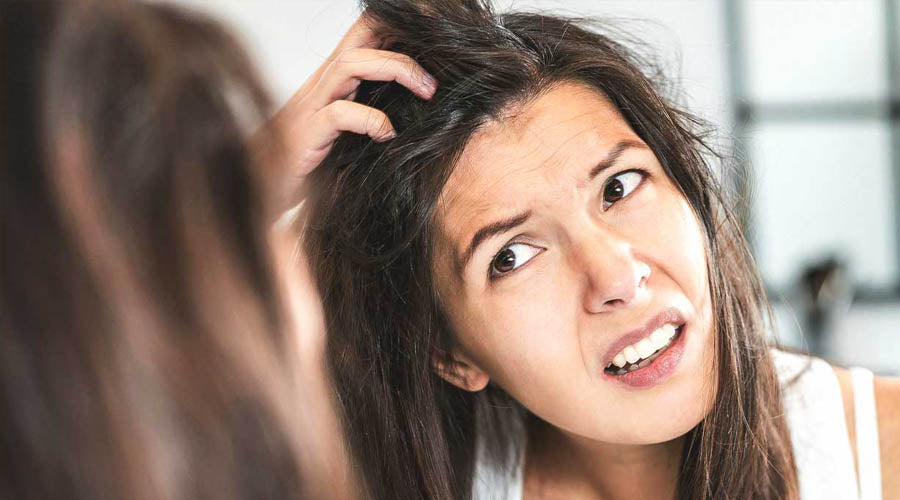
As noted above, dandruff isn't curable. But there are several things you can do to increase your chances of managing the condition and cutting back on those embarrassing white flakes. Finding the right management strategy might take some trial and error, so be patient. Here are some of the most helpful options to get you started.
1. Give natural ingredients a try
A variety of natural products may help get your dandruff under control without exposing you to the harmful chemicals that are often found in conventional anti-dandruff products. These include:
- Aloe vera, which is both antifungal and anti-inflammatory
- Apple cider vinegar, which may help reduce fungus on the scalp
- Baking soda, which helps exfoliate away dead skin cells and also has antifungal and anti-inflammatory properties
- Coconut oil, which is known to have antifungal and antimicrobial capacities
- Lemongrass oil, which is antimicrobial and anti-inflammatory
- Manuka honey, which has antibacterial, antifungal, and antioxidant properties and has been shown to assist in the management of dandruff
- Orange oil, which has antibacterial and antifungal properties
- Tea tree oil, which has antifungal properties and has been shown to minimize dandruff.
2. Take steps to reduce your stress
As noted above, stress can increase the chances of developing dandruff, possibly because it provokes inflammation throughout the body. Chronic stress can also weaken the immune system, which may contribute to dandruff.
For these reasons and more, it's important to manage your stress in healthy ways. That might look like practicing meditation or yoga, removing some responsibilities from your schedule so you have more down time, spending more time with friends, and so on.
3. Change up your diet
Because a poor diet may increase your risk of dandruff, making a few healthy changes can help clear up your scalp (and contribute to your overall health!). For instance, there's some evidence that adding the following into your diet might be useful:
Also, simply eating more fruits and vegetables and fewer processed foods may help reduce the inflammation that can exacerbate dandruff.
4. Avoid harsh products
Because harsh and/or irritating hair care products can make dandruff worse, it's important to use gentler products on your scalp and hair. Aim to wash frequently with a gentle shampoo and moisturizing conditioner. Remember: Daily washings can help remove the excess oil that contributes to dandruff, but washing with harsh products is unlikely to make your scalp and hair any healthier.
Be especially mindful of avoiding harsh chemicals such as alcohol or bleach. And if your scalp seems to get flakier after using a product, that's probably a sign that you should remove it from your bathroom.
Of course, if all else fails, it's important to consult a doctor or dermatologist. They'll be able to advise you about your best options moving forward. In severe cases, they might recommend prescription-strength shampoos or topical steroids.
Shampoo and Conditioner
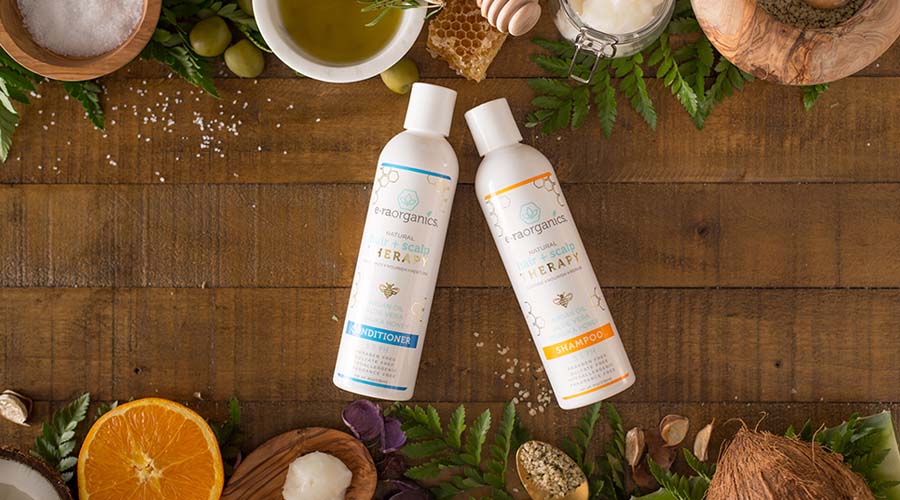
If you've ever dealt with dandruff, then you know there are a ton of anti-dandruff shampoos out there. While these shampoos can help some people manage the condition, they're not without their downsides. Many of them are made with harsh and potentially harmful chemicals such as coal tar, which is a known carcinogen.
So what are you supposed to do if you want to manage your dandruff without exposing yourself to harmful ingredients?
The answer lies in the previous section: Use gentle hair care products filled with plant-based ingredients that are proven to help manage dandruff.
That's exactly what you'll find in our Hair + Scalp Therapy Shampoo and Conditioner. Each of these hair care products are gentle enough that they won't strip essential nutrients from your scalp and hair, and effective enough to soothe itchy, flaky scalps.
Both our shampoo and conditioner are free of coal tar, parabens, sulfates, artificial fragrances, and other harmful ingredients. In lieu of nasty chemicals, they're packed with botanical, vitamin-rich, antibacterial, antifungal, and science-backed ingredients including:
- Aloe vera
- Argan oil
- Cehami extract
- Manuka honey
- Orange oil
Together, these ingredients help soothe itchy skin, increase healthy blood flow to the scalp, restore your hair's pH balance, and make your hair soft and manageable while discouraging pesky flakes and improving the overall health of your scalp and hair.
Summary
Dandruff can be annoying and embarrassing, but it is manageable.
It might take some trial and error, but a combination of lifestyle strategies and natural, proven ingredients should help you get your dandruff under control.
To that end, experiment with reducing stress, improving your diet, washing your scalp more frequently, and utilizing gentle hair care products that rely on healthy ingredients such as aloe vera and manuka honey.
With any luck, you'll be strutting your stuff in a black T-shirt in no time!

